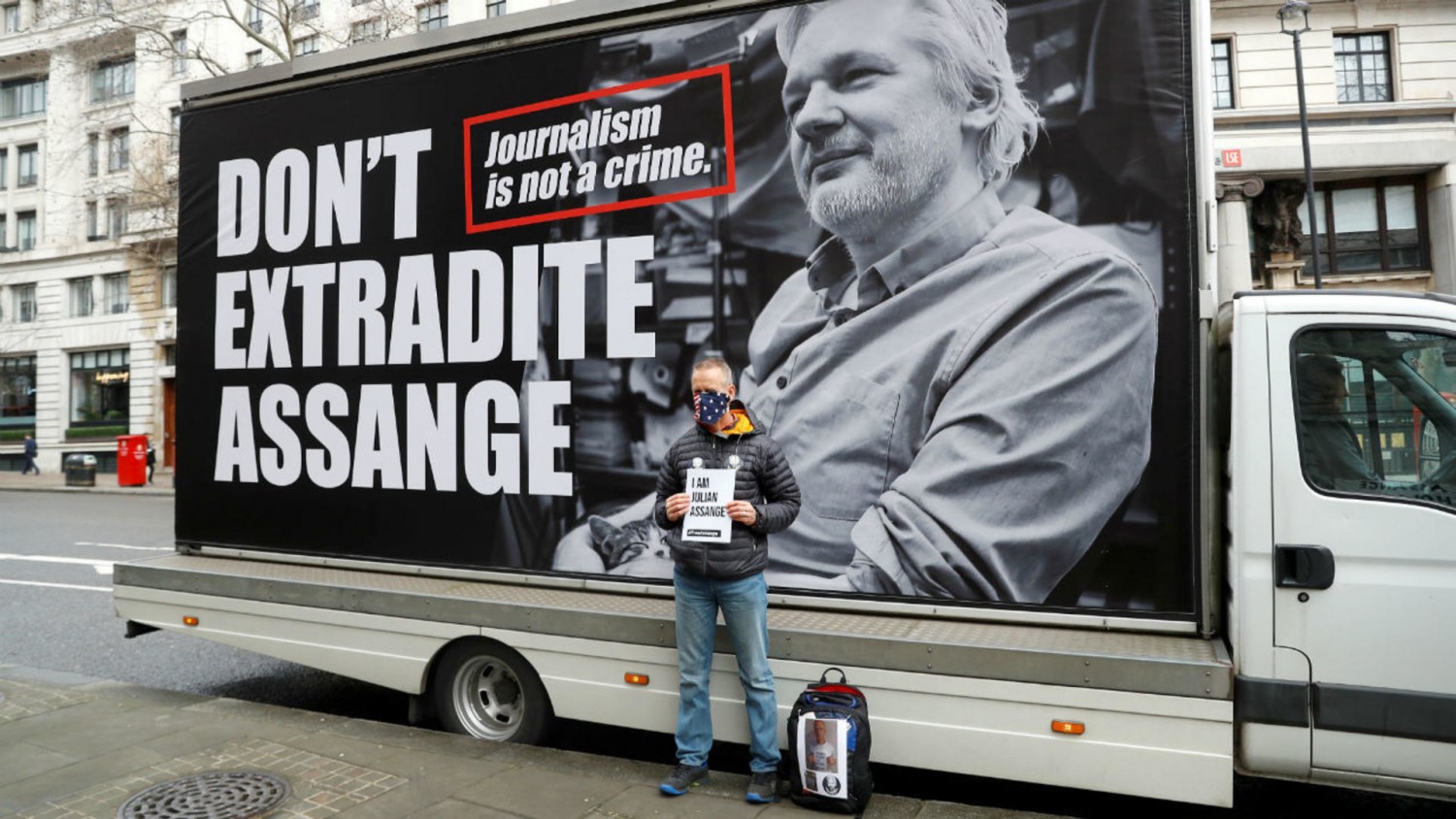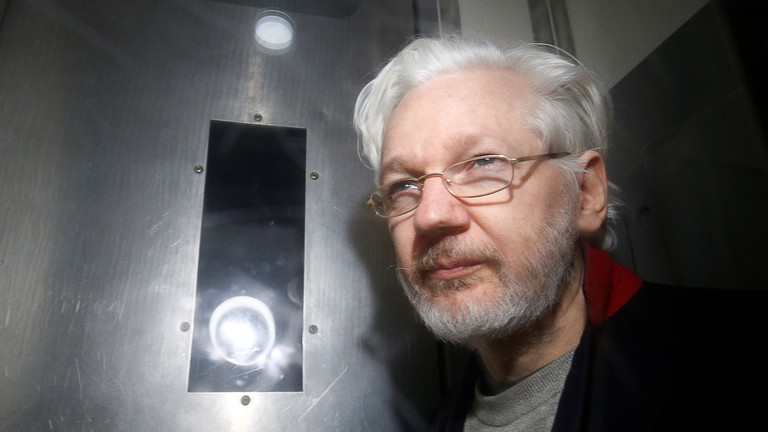This article is more than
4 year oldFacing extradition, whistleblower Assange returns to spotlight

The 48-year-old Australian is the figurehead of the whistleblowing website that exposed government secrets worldwide, notably the explosive leak of US military and diplomatic files.
But he has spent most of the past decade either in custody or holed up in Ecuador’s London embassy as he has tried to avoid extradition—first to Sweden and then to the United States.
Now, he will finally get his day in court as a British judge will this week hear the case for sending him to the US to face charges relating to his WikiLeaks work.
If found guilty of the espionage charges filed there, Assange could be jailed for 175 years.
Transparency and anti-war campaigners have hailed him for revealing the deaths of civilians, torture and clandestine military operations with the release of 500,000 US documents on the Iraq and Afghan wars.
Global Protests to mark the beginning of Julian Assange's Extradition Hearing - February 24 2020#DontExtraditeAssange #AssangeCase pic.twitter.com/NOqgaDGQPT
— WikiLeaks (@wikileaks) February 23, 2020
But Washington and its allies have accused him of risking lives by sharing information on sources, intelligence techniques and key infrastructure sites.
He has been held at the high-security Belmarsh prison in southeast London since he was dragged out of the Ecuadorian embassy ten months ago.
His team have repeatedly warned about his health and an independent UN rights expert said in November that his continued detention was putting his life at risk.
Meanwhile, the Council of Europe rights group was last week the latest such organisation to warn that Assange’s extradition would have a “chilling effect” on press freedoms.
Space station life
The saga began in 2010 when Assange faced allegations of sexual assault and rape in Sweden, which he always denied, saying they were a pretext and the ultimate goal was to transfer him to the US.
He was in Britain at the time but dodged an attempt to extradite him to Sweden by claiming political asylum in Ecuador’s embassy in London.
For seven years he lived in the small apartment in the embassy, exercising on a treadmill and using a sun lamp to make up for the lack of natural light in a situation he compared to living in a space station.
But after a change of government in Quito, Ecuador lost patience with its guest and turned him over to British police in April. He was arrested for jumping bail and jailed.
Read More (...)Keywords
Newer articles
<p>Seven men and five women have been picked, along with the first of what is expected to be a group of six alternates. Two jurors selected earlier were dismissed, and Donald...
TikTok ban now ‘inevitable’
Apple deletes WhatsApp, Threads from China app store on orders from Beijing
Ukraine ‘will have a chance at victory’ with new US aid, Zelenskyy says
Congress gets closer to forcing TikTok to be sold or face US ban: What's ne
Israel Launches Retaliatory Strike Against Iran
Israel Iran attack: Damage seen at air base in Isfahan
Who will be Trump’s VP? A shortlist
‘URANIUM’: Terrifying detail about Israel’s strike on Iran emerges
US vetoes Palestinian attempt to gain statehood at the United Nations




